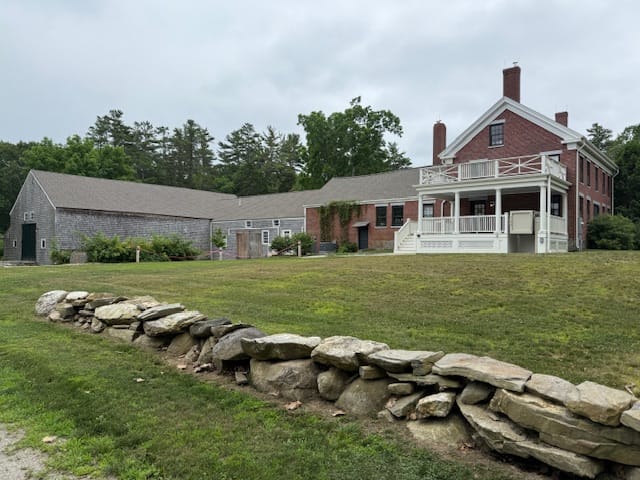Observations: Frances Perkins
"My family has been living in the funky town of Damariscotta, near the Pemaquid peninsula. And today, like last year, we visited the homesite of Frances Perkins, secretary of labor for Franklin D. Roosevelt’s entire tenure as president."

For the past several weeks, I’ve been staying in Maine, a place I’ve come to enjoy. My family has been living in the funky town of Damariscotta, near the Pemaquid peninsula. And today, like last year, we visited the homesite of Frances Perkins, secretary of labor for Franklin D. Roosevelt’s entire tenure as president.
Perkins had a home in the town of Newcastle, just across the river from Damariscotta, and she spent virtually every summer here, in the cool, pleasant climate. This was the place where she loved to relax, and it has recently become a national historic site.
Perkins was an amazing character. She was the first female cabinet secretary in American history, and that in itself should make her worth knowing about.
But in fact, she did much more. Horrified by the Triangle Shirtwaist Factory fire in New York City in 1911, where nearly 130 young women perished because bosses had locked the doors so they couldn’t take breaks, she became a social service activist, where she worked closely with Governor Roosevelt. And when he became president in 1933, he asked her to come to Washington, too.
She held out until he gave her his promise to support a pension program for the elderly. At that time, there was no such provision, and ordinary workers with no independent assets often had nothing to support themselves when they were too old to work.
In 1935, with FDR’s support, Congress passed the Social Security Act, and America finally followed the example of a number of European countries.
Workers made contributions, out of their weekly or monthly paychecks, and in return received a pension on retirement.
For the United States, it was an extraordinary step forward, and today it is a solid source of support for millions of citizens.
It wasn’t always an economic boon for the country. Worker contributions began in 1935, pension payments not until 1942, so it did precisely the opposite of what economist John Maynard Keynes counseled as the best way to get the country out of the Great Depression – spend money. But it was still a remarkable step forward.
Over the years, the program has undergone modest changes. But today, as the number of baby boom retirees mounts and the working population diminishes, the program is in trouble. Indeed, the Social Security trust fund is due to be gone in a number of years.
There are fixes possible, to be sure. But whether the current dysfunctional Congress can be counted on to take any action remains to be seen.
President Donald J. Trump proclaimed that he was not going to touch either Social Security or Medicaid, which was part of the Medicare policy implemented as a supplement to Social Security in 1965. And we saw what that promise was worth when push came to shove in the recent Tax Cut bill that is now law.
Frances Perkins was not flashy. She was not committed to self-promotion. Cabinet members in those days were not billionaires, as they are today. But she, like the others in FDR’s Cabinet, was committed to working for the good of the American people.
And as I wandered around her home here in Maine, as someone who has benefited from Social Security for the past 15 years, I’m grateful for all she did.
Allan Winkler is a University Distinguished Professor of History Emeritus at Miami University, where he taught for three decades. He serves on the Board of Directors for the Oxford Free Press.




